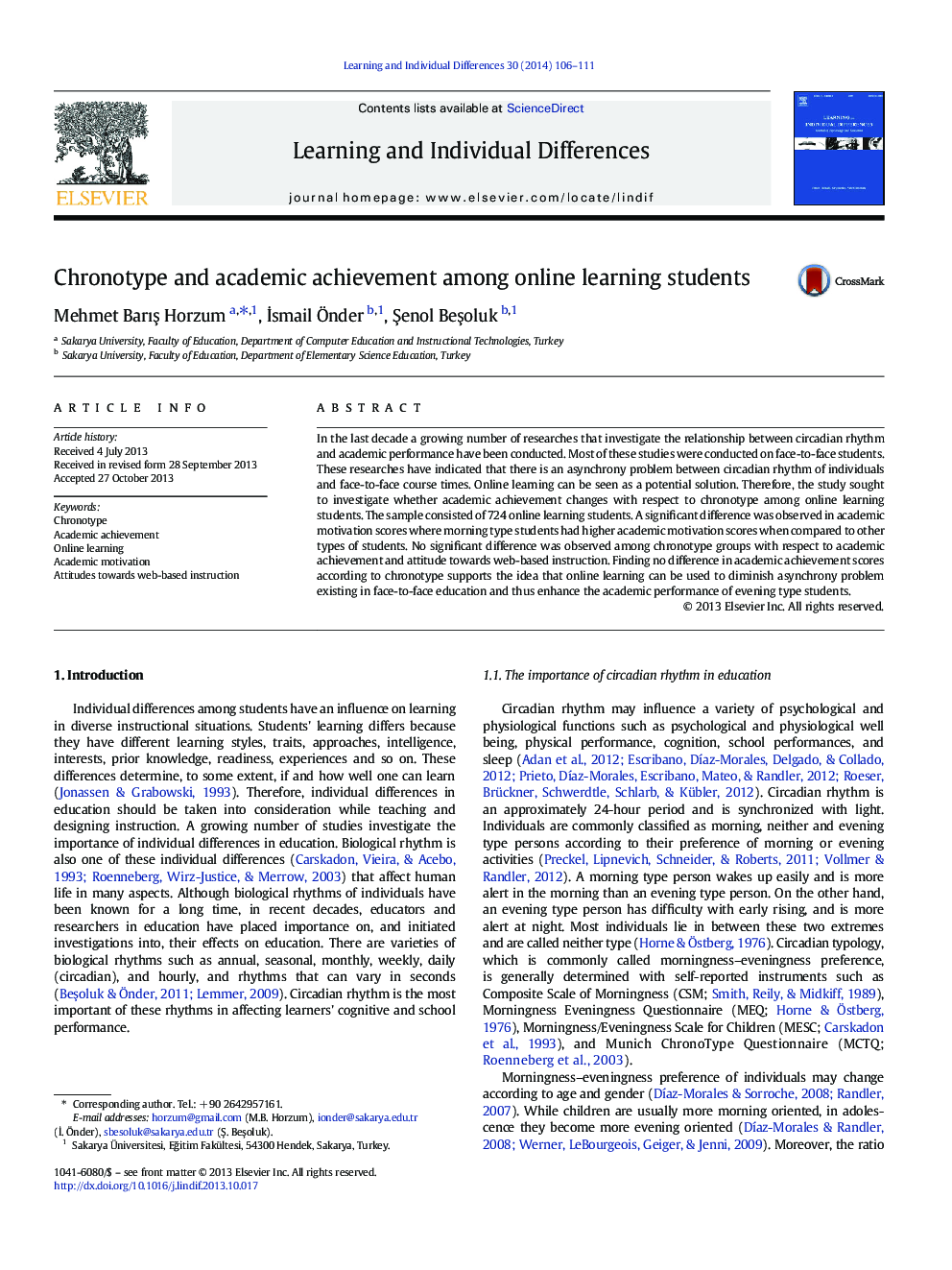| کد مقاله | کد نشریه | سال انتشار | مقاله انگلیسی | نسخه تمام متن |
|---|---|---|---|---|
| 364892 | 621096 | 2014 | 6 صفحه PDF | دانلود رایگان |
• Online learning may diminish asynchrony between circadian rhythm of students and face-to-face instruction schedule.
• No difference in academic achievement according to chronotype groups
• No difference in attitude according to chronotype groups
• Morning-type students had higher academic motivation.
In the last decade a growing number of researches that investigate the relationship between circadian rhythm and academic performance have been conducted. Most of these studies were conducted on face-to-face students. These researches have indicated that there is an asynchrony problem between circadian rhythm of individuals and face-to-face course times. Online learning can be seen as a potential solution. Therefore, the study sought to investigate whether academic achievement changes with respect to chronotype among online learning students. The sample consisted of 724 online learning students. A significant difference was observed in academic motivation scores where morning type students had higher academic motivation scores when compared to other types of students. No significant difference was observed among chronotype groups with respect to academic achievement and attitude towards web-based instruction. Finding no difference in academic achievement scores according to chronotype supports the idea that online learning can be used to diminish asynchrony problem existing in face-to-face education and thus enhance the academic performance of evening type students.
Journal: Learning and Individual Differences - Volume 30, February 2014, Pages 106–111
